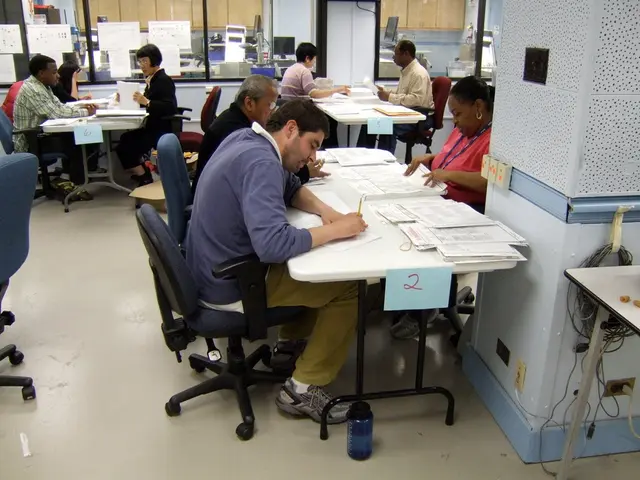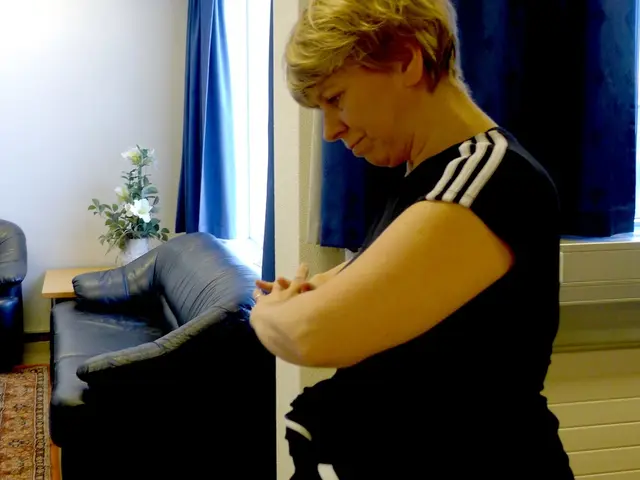Critique - Bill Straub: Enhancement of Care for Over a Million Kentucky Medicaid Recipients Unsuccessfully Delivered
The Kentucky Hospital Association (KHA) has expressed support for the controversial One Big Beautiful Bill, despite concerns over potential reductions in health insurance coverage for thousands of Kentuckians.
The House version of the bill restricts states from creating new provider taxes or expanding existing ones to finance Medicaid. This could lead to a budget crisis for many states, including Kentucky, as Medicaid provider taxes are used to pay for the state's share of the Medicaid bill and leverage an increase in matching dollars from the federal government.
The KHA is backing the bill due to the significant federal funding programs and structural changes it offers. These are expected to help sustain hospital operations, particularly in financially vulnerable rural hospitals.
The bill imposes Medicaid work requirements, which risk many losing coverage, reducing Medicaid revenues for hospitals. However, the KHA sees the bill as a lifeline for rural healthcare infrastructure. It includes about $50 billion in federal grants aimed at restructuring and shoring up rural healthcare nationwide.
KHA president Nancy Galvagni stated that without the Hospital Rate Improvement Program (HRIP) federal funds that supplement Medicaid reimbursements without additional state spending, Kentucky hospitals’ operating margins would be deeply negative, threatening hospital viability and patient care access.
Rural hospitals like Harrison Memorial are already preparing to cut millions from their budgets annually in response to expected Medicaid revenue losses post-2027. The bill removes tools states used to increase Medicaid reimbursements, leading to an estimated $15 billion cut for Kentucky hospitals over a decade.
Despite these potential coverage losses, the KHA prioritizes the long-term financial feasibility of hospitals under the new federal landscape. The association urges Congress to reject reductions to the Medicaid program that would destabilize hospitals and health systems.
The One Big Beautiful Bill could potentially result in elderly nursing home residents losing their benefits and 1.4 million people losing coverage in state-funded programs, including those without verified citizenship, nationality, or satisfactory immigration status.
The KHA protects the health care access for 1.3 million Kentuckians enrolled in the Medicaid program. However, the CBO report does not suggest that 1.4 million illegal immigrants are taking advantage of the Medicaid program; instead, it refers to undocumented residents enrolled in state programs.
The Kentucky Medicaid program is crucial for many Kentuckians, according to the Kentucky Hospital Association. The association is urging folks to take action against the One Big Beautiful Bill on its website. The bill, currently in the Senate, aims to make permanent several tax cut measures and could potentially cut federal funding for Medicaid by $793 billion.
- The Kentucky Hospital Association (KHA) supports the One Big Beautiful Bill, despite concerns about potential health insurance coverage reductions for thousands of Kentuckians due to the bill's Medicaid work requirements.
- The One Big Beautiful Bill offers significant federal funding programs and structural changes that the KHA believes will help sustain hospital operations, especially rural ones.
- The House version of the One Big Beautiful Bill restricts states from creating new provider taxes or expanding existing ones to finance Medicaid, which could lead to a budget crisis for many states, including Kentucky.
- The KHA sees the One Big Beautiful Bill as a lifeline for rural healthcare infrastructure, as it includes about $50 billion in federal grants aimed at restructuring and shoring up rural healthcare nationwide.
- The KHA is concerned that the One Big Beautiful Bill, if passed, could potentially cut federal funding for Medicaid by $793 billion, which could have a significant impact on the health and wellness of many Kentuckians enrolled in the Medicaid program.




